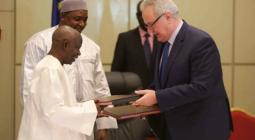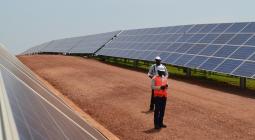Cape Town is gearing up for renewable energy
Cape Town - The City of Cape Town is keen to expedite its legal action against the minister of energy and the National Energy Regulator of South Africa (Nersa) in the North Gauteng High Court.
The City wants permission to buy up to 40MW of renewable energy from independent power producers (IPPs).
“The price of power generated from IPPs would differ based on technology and the procurement process to be followed if the court case is successful,” said mayoral committee member for energy and climate change Phindile Maxiti.
The city said if it was allowed to procure renewable energy, it could reduce long-term costs for residents. “Currently, 65% of the tariff we charge customers goes towards the cost of buying electricity from Eskom.”
But renewable energy consultant David Lipschitz said the city has excluded homeowners and businesses who are IPPs. “The city is not allowing people to be ‘negative’. That means it is not prepared to pay homeowners for additional electricity they feed into the grid.”
If the city bought from IPPs, they should do so from homeowners and businesses too, he said.
According to Lipschitz, roof-top generation was less hassle as environmental impact assessments were not needed and a 10kW system took a few days to install. “Imagine if the R500billion wasted at Eskom over the past 10 years had gone into incentives for such IPPs. The electricity and jobs landscape would be entirely different.”
This week Minister of Energy Jeff Radebe said Eskom’s woes couldn’t be blamed on the IPPs. “The cost of buying from the IPPs is included as an expenditure before the calculation of the Ebitda number. In other words, after all operational costs have been paid, including the electricity from the IPPs, but before the payment of interest.
“Eskom is not borrowing money to buy the electricity generated by IPPs or for funding the construction of the IPPs. Since 2013, Eskom has not incurred a cent in buying electricity from the IPPs that they have not been able to recover through the tariff allowance.
“This treatment of REIPPP (Renewable Energy Independent Power Producer Programme) cost applies to Cahora Bassa as well and it’s a long-established practice,” he said.
On March 7, Nersa will announce Eskom’s fourth multi-year price determination of tariffs for three years from April 2019 to March 2022.
4 March 2019




